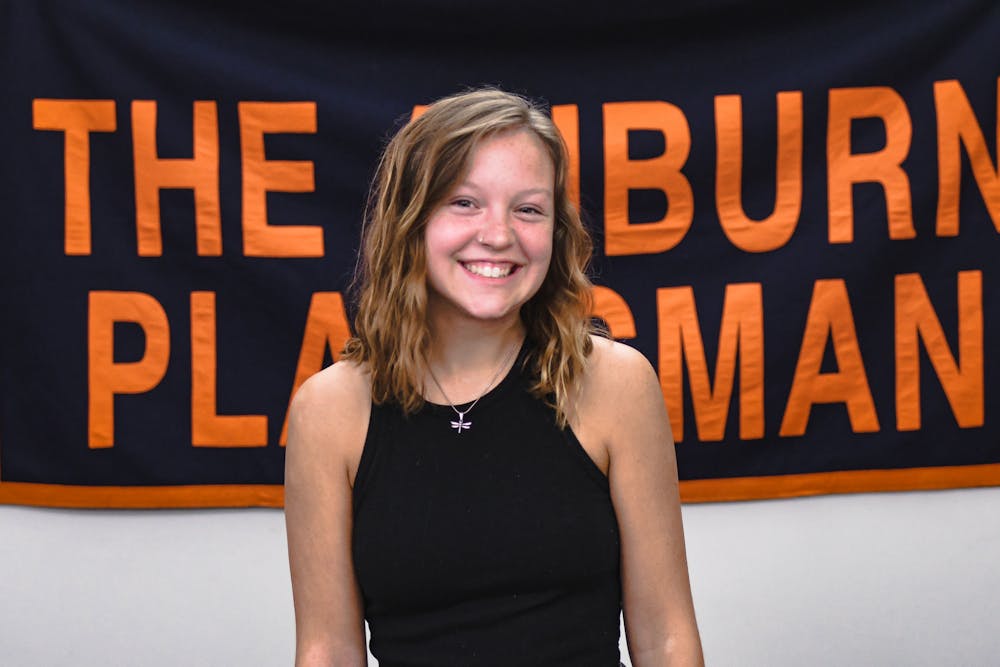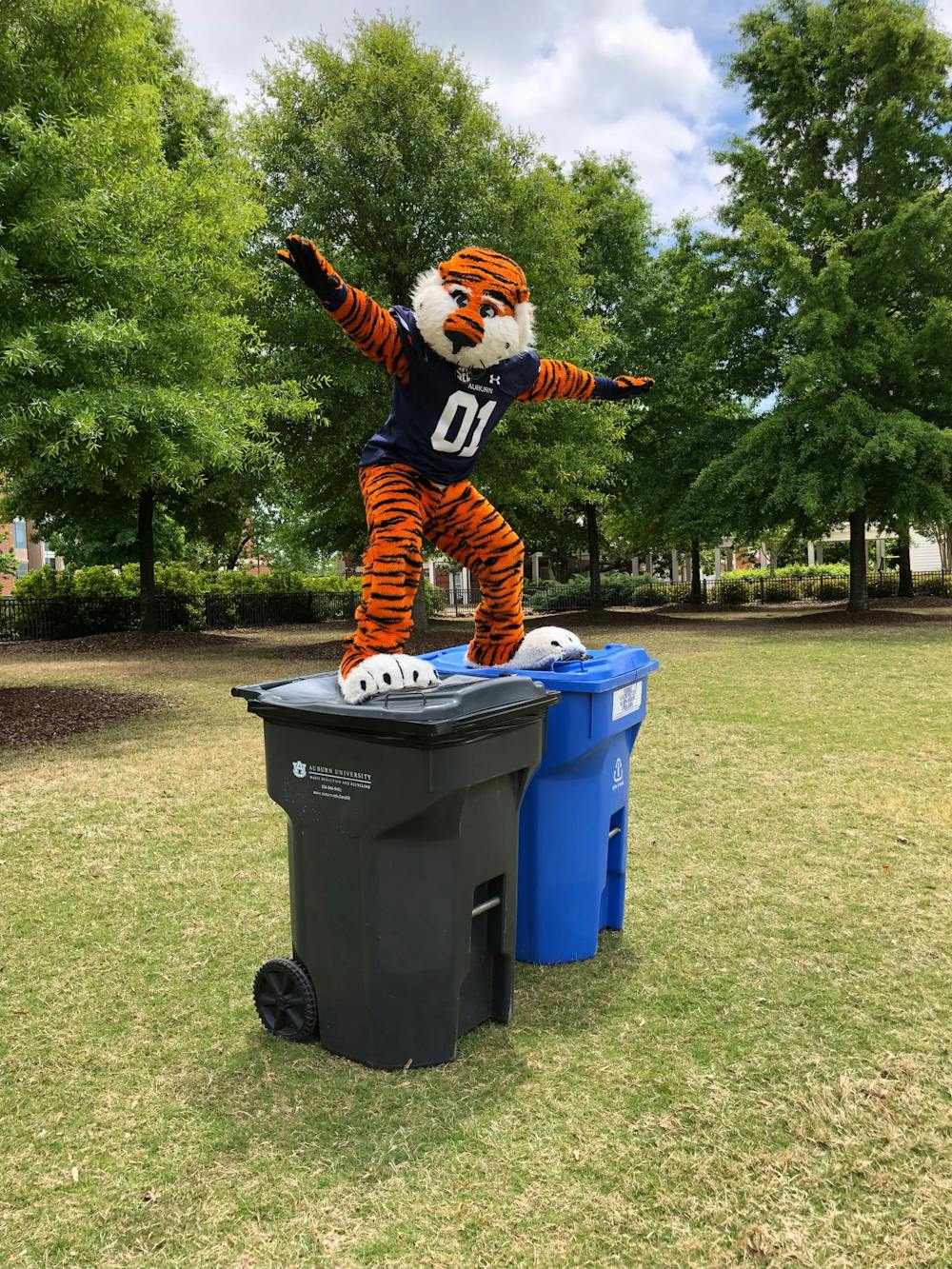The Auburn University Office of Sustainability was officially adopted in 2011. Since then, it has worked to reduce waste, increase recycling and save energy on Auburn’s campus.
Jennifer Morse, outreach and communications manager of the Office of Sustainability, explained how the Office of Sustainability makes Auburn University a better place.
“We do outreach and engagement, which is getting students and employees more involved,” she said. “We do the sustainability reporting for campus. This includes The Sustainability Tracking Assessment and Rating System and Greenhouse Gas reporting. We work very closely with the Waste Reduction and Recycling Department.”
Joan Hicken is the waste reduction and recycling coordinator at Auburn University. Hicken discussed how this department works to keep Auburn sustainable.
The department oversees a dizzying amount of equipment and machines: 130 solid waste front end loaders, 75 cardboard recycling front end loaders, 13 trash compactors, two recycling compactors, more than 400 hand-pick bins, 30 Big Belly units, 200 ninety-five-gallon mixed paper recycling bins, six cardboard balers and many others across campus.
Both the Office of Sustainability and the waste reduction and recycling department, aim to promote sustainability, which is why they work closely together.
Hicken explained how the Waste Reduction and Recycling Department creates change in Auburn.
“We use integrated solid waste management techniques to manage our solid wastes,” Hicken said. “This is a strategic approach to sustainable waste management including activities like waste reduction, recycling and landfilling. Our materials and waste priorities are to reduce waste in the first place, and then, if waste is generated, recycle it before landfilling.”
The department of waste reduction and recycling also has a number of ways students can get involved.
“The waste reduction and recycling department teams up with student volunteers to distribute recycling bags to tailgaters at home football games to increase recycling and reduce the amount of waste going to the landfill,” she said.
They had 87 student volunteers contribute a total of 80 volunteer hours handing out 2,020 recycling bags to tailgaters to collect plastic bottles and aluminum cans for recycling during the 2021 football season.
Through service, students practice skills like leadership, problem-solving and time management and contribute to Auburn’s sustainability effors.
Another way the waste reduction and recycling department increases student involvement is through its Sustainability Picnics.
The Sustainability Picnic is a no-waste event which takes place at the Donald E. Davis Arboretum each year.
“The Sustainability Picnic is an opportunity for students to discover the breadth of sustainability at Auburn University,” Hicken said. Students can connect with academic and university departments and explore how to get involved. Students can also meet representatives of event sponsors: Tiger Dining, Arboretum, waste reduction and recycling repartment, academic sustainability programs, College of Forestry and Wildlife Sciences and Office of Sustainability.”
While the Office of Sustainability and department of waste reduction and recycling are great ways for students to get involved in improving sustainability, there are many other ways for students to get plugged into helping the environment.
Hicken provided many helpful recycling resources for students and faculty alike: In order to make recycling convenient for those who do not have access to the proper bins at their condos, homes or apartment complexes, their department has set up a recycling drop-off center that is open to all members of the Auburn community.
The drop-off site is located on West Thach Avenue at the back of the West Campus Parking Lot.
“In 2021, we recycled 396 tons of cardboard, 174 tons of paper, 46 tons of scrap metal and 29 tons of mixed containers” she said.
Recycling, according to Hicken, is a great way to conserve natural resources, save energy, prevent pollution and reduce the amount of waste sent to landfills.
Do you like this story? The Plainsman doesn't accept money from tuition or student fees, and we don't charge a subscription fee. But you can donate to support The Plainsman.
Harlee Meydrech, senior in public relations with a minor in business, currently serves as the editor-in-chief of The Auburn Plainsman. She previously served as the assistant managing editor and an editor in the culture section.






